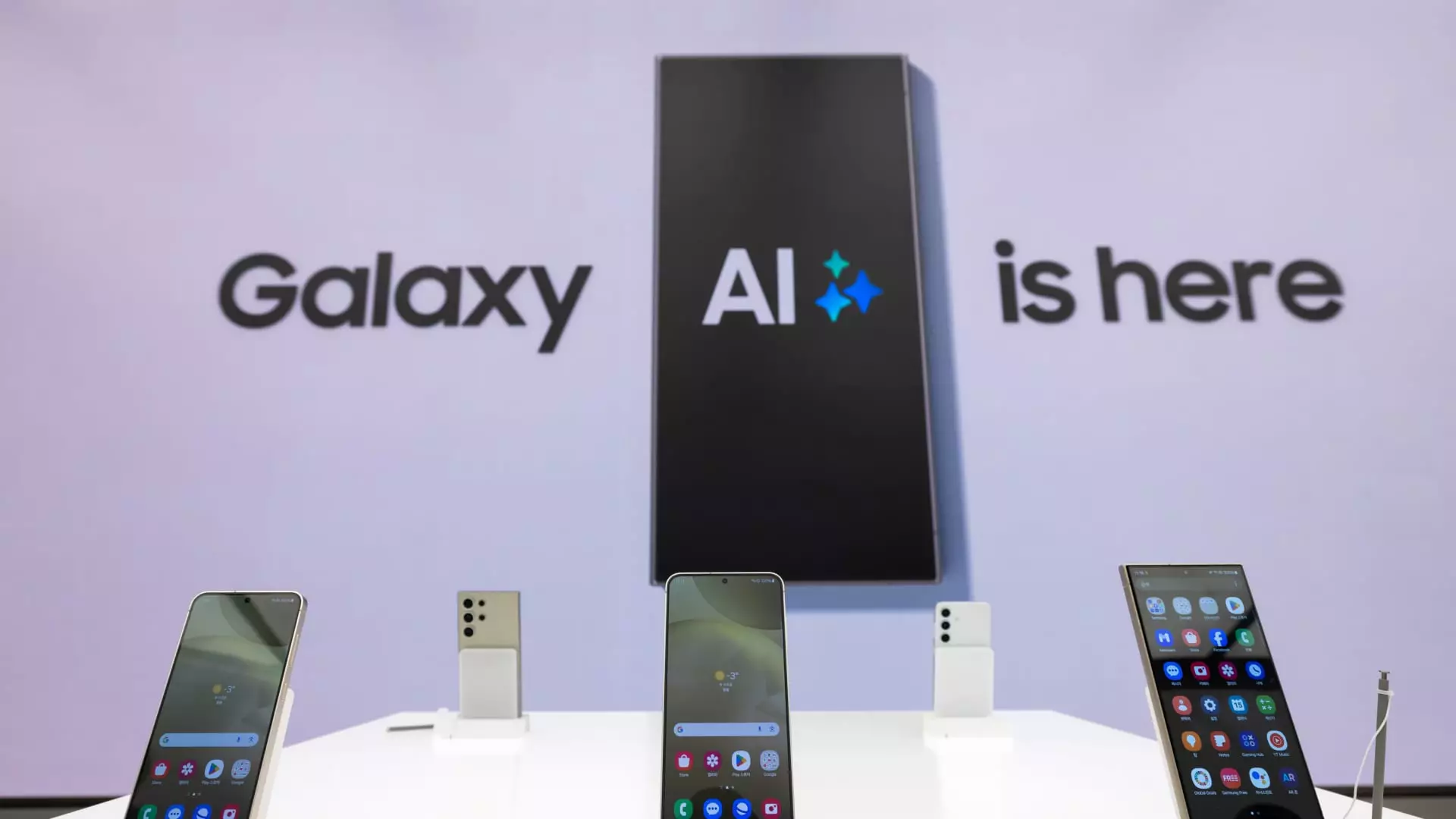Samsung is considering adding generative artificial intelligence technology to its voice assistant Bixby to improve the overall functionality of its devices. Bixby was initially introduced in 2017 alongside Samsung’s Galaxy S8 smartphone, offering various features such as live translations and restaurant recommendations. However, traditional voice assistants like Bixby have primarily focused on answering user queries rather than engaging in conversational interactions. The recent advancements in chatbot technology, particularly with the emergence of OpenAI’s ChatGPT, have allowed for more complex interactions. Generative AI enables chatbots to generate responses in various forms, including text, images, and even videos.
Samsung’s Bixby is integrated across the company’s wide range of devices, including smartphones, smartwatches, and appliances. The voice assistant serves as a key tool for users to control their devices within their home environment. However, Bixby has not yet reached the level of sophistication seen in chatbots like ChatGPT. Samsung is looking to incorporate more advanced AI features into its devices, as evidenced by the introduction of new features with Galaxy AI in its latest S24 smartphone series. These features enhance user experience by enabling tasks such as searching on Google without switching between apps.
The Future of Bixby and Generative AI
Won-joon Choi, executive vice president at Samsung’s mobile business, emphasized the company’s commitment to enhancing Bixby with generative AI technology. Choi envisions a future where Bixby can engage in more natural conversations and support Samsung’s ecosystem of products effectively. By leveraging large language models and generative AI, Samsung aims to redefine Bixby’s role as a more intelligent voice assistant. While Choi did not provide a specific timeline for implementing generative AI features in Bixby, he assured that Samsung is actively working towards this goal.
Samsung’s emphasis on advancing AI technology aligns with the growing interest in generative AI within the tech industry. Investors are closely observing Apple’s upcoming developments in this space, as the company is expected to introduce new AI features across its products at its annual developers conference, WWDC. Samsung’s dedication to integrating generative AI into Bixby reflects the competitive landscape of the AI market and the importance of staying ahead in terms of technological innovation.
Samsung’s potential integration of generative AI technology into Bixby signals its commitment to enhancing user experiences and advancing AI capabilities across its devices. By redefining Bixby’s role with generative AI, Samsung aims to stay at the forefront of innovation in the voice assistant space. As technology continues to evolve, the integration of advanced AI features like generative AI will be crucial for delivering personalized and intuitive user interactions.


Leave a Reply